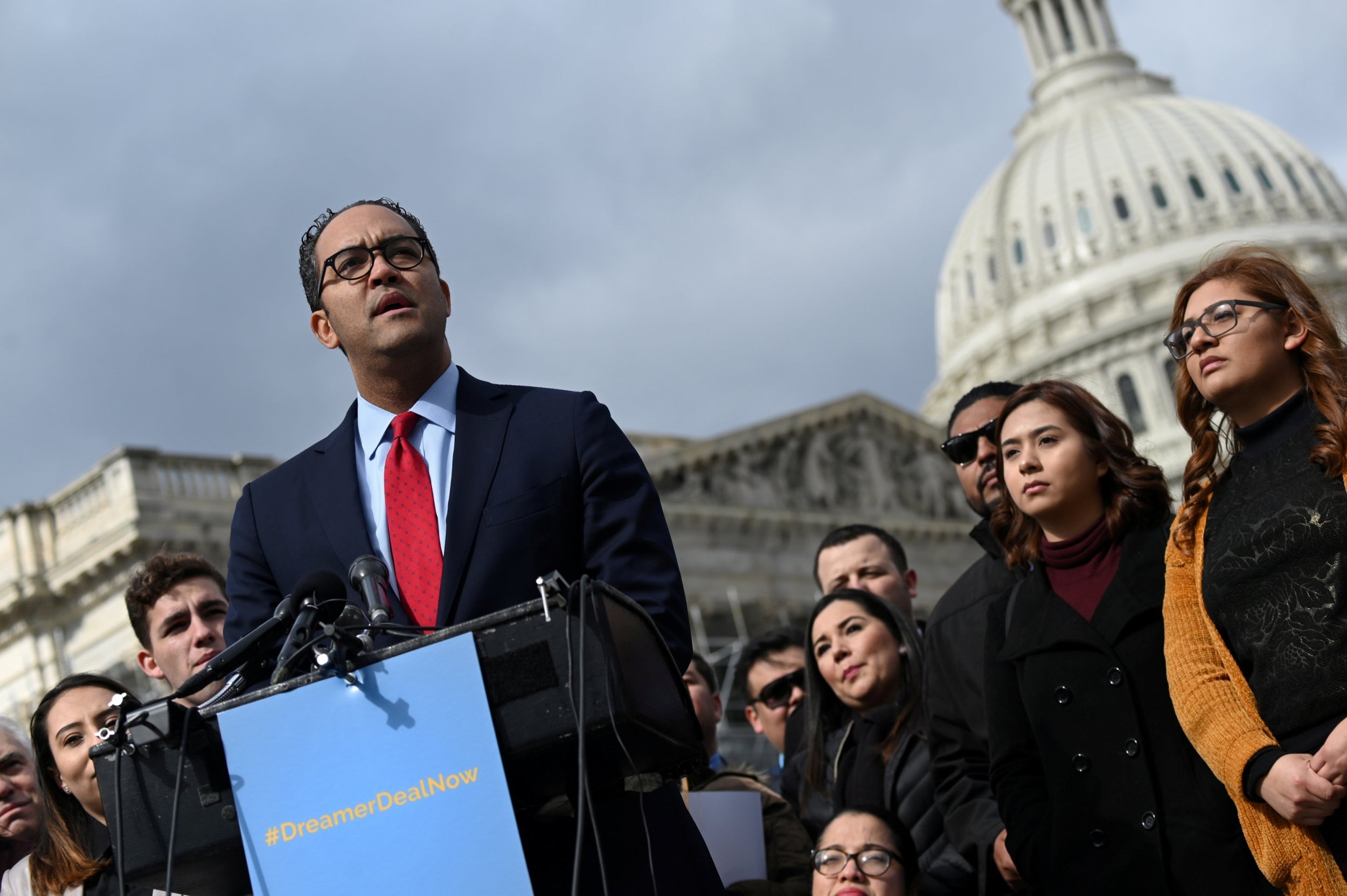The Republican Party has a problem with diversity – and it’s only getting worse
Politics Explained: The decision of the GOP’s only black congressperson not to seek re-election highlights just how white and male the party is

The announcement from congressman Will Hurd that he will not seek re-election in his Texas district in 2020 has put some members of the Republicans in a spin.
The only black GOP congress member in the House of Representatives, Hurd is the latest in a string of retirements that will make Republican attempts to take back the house from Democrat control next year much harder.
The former CIA officer’s 23rd district is almost in perpetual motion politically and is one of the biggest in the country, spanning from San Antonio to near El Paso and including hundreds of miles of the border with Mexico. It is almost 70 per cent Latino, and Hillary Clinton won it by about 3.5 percentage points in 2016.
Last year’s midterm elections left Hurd as one of just three house Republicans to sit in a district carried by Clinton, not President Trump. Hurd did not win by much in 2018, gaining a second term by just under 1,000 votes.
Being one of a dwindling number of moderate Republicans willing to stand up to Trump, Hurd likely did not relish another tough battle. The congressman has hit back at the president over his attacks on the integrity of the intelligence services, his requests for a border wall and Trump’s racist tweets against four progressive Democrat house members.
Trump told Alexandria Ocasio-Cortez of New York, Ilhan Omar of Minnesota, Rashida Tlaib of Michigan and Ayanna Pressley of Massachusetts to “go back” where they came from. All four members are American citizens and all except Omar were born in the US, with the Minnesota representative becoming an American citizen when she was 17 years old. Hurd was one of only four house Republicans to vote in favour of a resolution condemning Trump’s racist tweets.
But Republican problems go beyond Hurd’s district. Nine members of the GOP have decided to retire rather than seek re-election since the end of the 2018 election cycle and six of those have come in the last two weeks. That includes another Texas Republican Pete Olson and Indiana’s Susan Brooks, both of whose districts are considered vulnerable in 2020.
Representative Martha Roby of Alabama is also quitting, meaning that two of the 13 GOP women in the house will be gone. Only one new Republican woman was elected to the house in the 2018 midterms despite it being an area the party recognises it needs to strengthen. Last year the Democrats welcomed a record number of women in congress.
The last Democrat intake were also the most diverse in years, while Republicans are taking the image of the president – very white and male. Part of that is down to the fact that whichever party holds the majority in the house controls virtually every facet of the chamber – so being in the minority is not much fun. But it is also indicative of the president’s policies.
Republicans were already facing a tough job to retake the house in 2020, the odds of it happening are slipping with every retirement.
Join our commenting forum
Join thought-provoking conversations, follow other Independent readers and see their replies
Comments
Bookmark popover
Removed from bookmarks